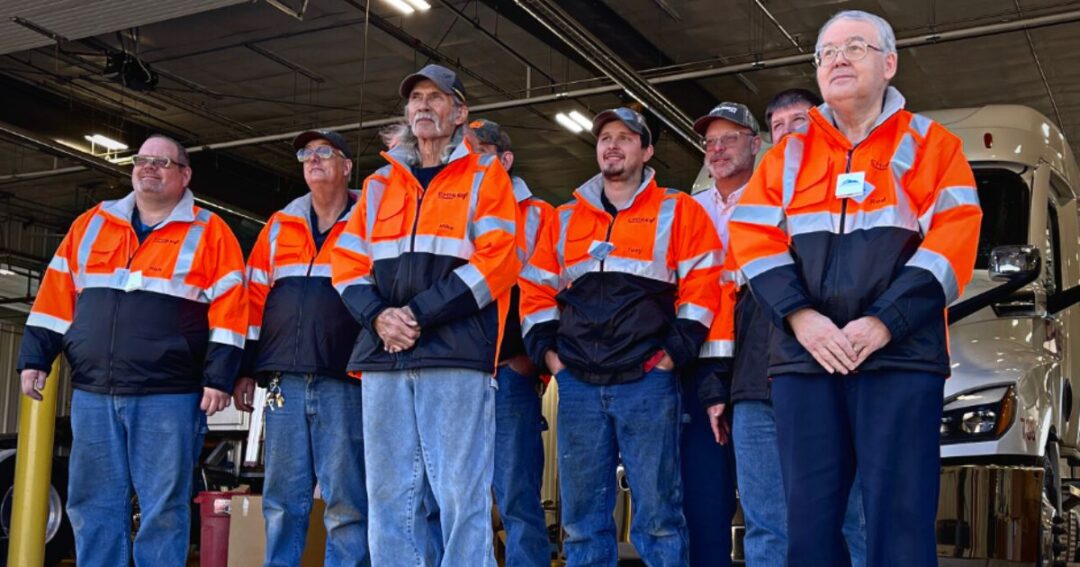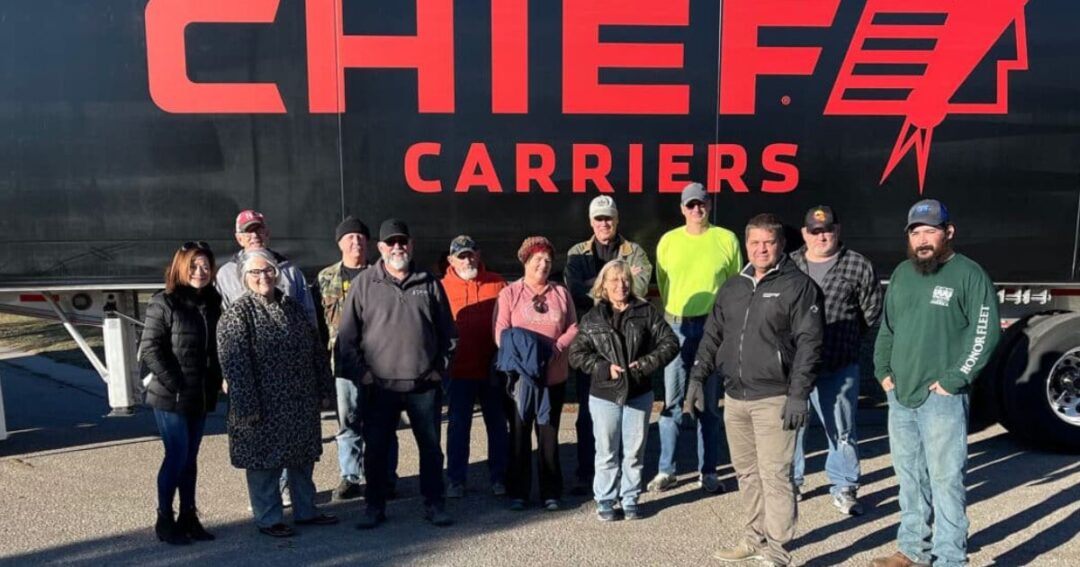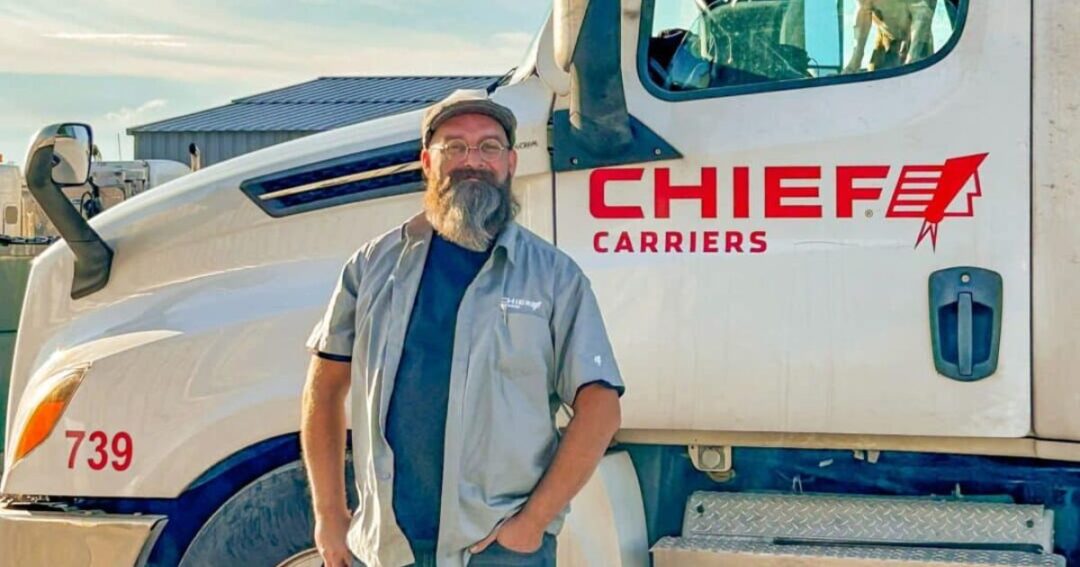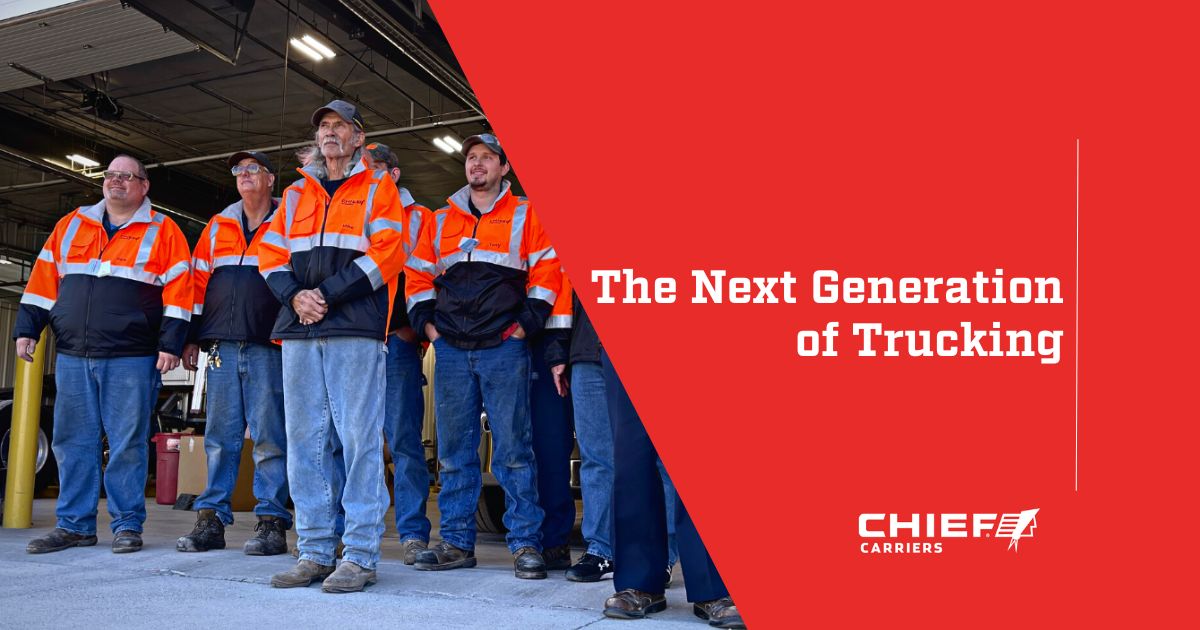Welcome back, readers, to the “Driven Too Far” blog. Here, we extend the conversations from our podcast to dive deeper into the trucking world. Today, we’re revisiting a particularly impactful episode titled “The Next Generation of Trucking.”
In this episode, we grappled with a critical and timely issue in our industry: the growing shortage of truck drivers and the need to introduce young people to trucking careers.
We discussed not only the current state of the driver shortage but also strategies to attract the next generation into this vital profession. The significance of this topic cannot be overstated, as it touches every facet of our industry and community.
Reflecting on my own journey in trucking, I’ve witnessed firsthand how the industry’s landscape has evolved. The challenge of attracting young talent is one that resonates deeply with me.
It’s not just about filling seats; it’s about passing on a legacy and ensuring the vitality of our profession. The importance of nurturing new talent is key to sustaining the trucking industry’s future.
This blog furthers the discussion from the podcast, offering additional insights and practical advice. We’ll explore how this issue is relevant not only for newcomers contemplating a career in trucking but also for industry veterans who play a crucial role in shaping the future of trucking.
As we dive into the topic, we’ll ask the crucial question: What does the future of trucking look like, and how vital is the role of the next generation in shaping this future?
Stay tuned as we explore these themes, share stories, and discuss strategies to bring new energy into the heart of our industry.
State of the Trucking Industry
The trucking industry, vital to our economy, faces a critical driver shortage. Currently, there’s a gap of approximately 74,000 drivers, a figure expected to rise significantly. By 2030, the deficit could reach between 130,000 and 160,000 drivers.
Multiple factors contribute to this shortage. A significant issue is the aging workforce, with many drivers nearing retirement. Additionally, the industry’s image has struggled to attract younger generations, often being seen as a last-resort career.
Looking to the future, we see both challenges and opportunities. Demand for freight is increasing, yet the workforce is dwindling. This situation demands innovative solutions and effective recruitment strategies to make trucking a desirable career for young people.
The industry’s future hinges on a collective effort. It’s crucial for everyone, from corporate leaders to individual drivers, to work towards a sustainable trucking industry. Through collaboration and dedication, we can overcome these challenges.

Introduction to Next-Gen Trucking Association
The Next-Gen Trucking Association is a beacon of hope in addressing the driver shortage crisis. Founded with a mission to rejuvenate the trucking industry, this organization focuses on introducing trucking careers to high school students.
Their efforts are aimed at reshaping the perception of trucking as a viable and respectable career choice for the younger generation.
At the core of their strategy is the creation and promotion of professional driving courses in high schools. Similar to existing vocational programs like welding or culinary arts, these trucking courses are designed to provide students with foundational knowledge and skills.
The objective is to ignite interest in trucking careers and pave the way for future professional drivers.
The association’s efforts don’t stop at education. They also emphasize the importance of high-quality training. They advocate for the inclusion of advanced training tools like driving simulators, which enhance the learning experience and prepare students more effectively for real-world challenges.
These simulators offer a safe and controlled environment for students to develop crucial driving skills.
By partnering with schools and the trucking community, Next-Gen Trucking Association is building a bridge between education and industry. Their work is essential in creating a well-informed, skilled, and enthusiastic workforce.
This initiative not only benefits the students but also promises a brighter future for the trucking industry as a whole.
Industry Image and Perception
The trucking industry’s image and public perception have undergone significant changes, particularly in the aftermath of the COVID-19 pandemic. Once viewed as a less desirable career path, trucking is now gaining recognition as an essential and respectable profession.
This shift in perception is a crucial step in attracting new talent to the industry.
COVID-19 highlighted the indispensable role truckers play in our society. As front-line workers ensuring the continuous supply of goods, truckers gained newfound respect and visibility. This exposure has helped to alter the narrative around trucking, showcasing it as a career of skilled professionals who are vital to the functioning of our daily lives.
However, challenges in image and perception remain. The industry still battles with stereotypes and misconceptions, which can deter young people from considering trucking as a viable career option. It’s imperative that we continue to work on improving the industry’s image, not only to attract new drivers but also to enhance the pride and satisfaction of current ones.
As we move forward, it’s essential to maintain this positive momentum and build on the respect earned during the pandemic. By continuing to elevate the image of trucking, we can ensure a steady influx of passionate, dedicated individuals who are proud to be part of this critical industry.

Supporting the Next Generation
Supporting the next generation of truckers is not just about recruiting; it’s about mentoring and guiding them. Veteran drivers, with years of experience and wisdom, play a pivotal role in this process. They are the unsung heroes who can bridge the gap between the old and the new, fostering a supportive and progressive industry culture.
One effective strategy is establishing formal mentorship programs. Veteran drivers can be paired with newcomers, offering guidance, sharing insights, and providing practical advice. This mentor-mentee relationship helps novices navigate the challenges of the road and the industry, while also fostering a sense of community and belonging.
Informal interactions also hold significant value. Veterans can share stories and experiences, both in person and through digital platforms like social media or forums. These narratives not only impart practical knowledge but also instill a sense of pride and tradition in the profession.
Workshops and training sessions led by experienced drivers are another excellent way to support newcomers. These sessions can cover a range of topics, from safety practices to navigating regulatory changes. By actively participating in the education and training of new drivers, veterans help ensure a well-prepared, competent workforce for the future of trucking.
Ultimately, the support from veteran drivers is crucial in building a resilient and skilled new generation of truckers. Their mentorship, combined with their passion for the profession, can inspire and cultivate a robust and dedicated trucking community.
Educational Pathways in Trucking
Educational pathways in trucking, particularly in high schools and colleges, are evolving to meet the industry’s growing demands. These institutions are increasingly recognizing trucking as a viable career option and are developing programs to prepare students for this field.
Their efforts are pivotal in building a skilled and knowledgeable new generation of truckers.
High schools, collaborating with organizations like the Next-Gen Trucking Association, are introducing trucking-focused courses. These programs go beyond basic driver education, offering comprehensive insights into the trucking industry.
They include theoretical knowledge, practical driving skills through simulators, and an understanding of the regulatory landscape. These courses aim to spark interest in trucking careers among students and provide a solid foundation for those who choose to pursue them.
Colleges and vocational schools are also stepping up, offering specialized programs for those seeking a career in trucking. These programs typically include obtaining a Commercial Driver’s License (CDL) and understanding the nuances of long-haul trucking. They often provide hands-on training, which is crucial for developing the practical skills needed on the road.
By integrating trucking into educational curricula, these institutions are not only preparing students for immediate employment but are also helping them understand the broader significance of the trucking industry. This educational approach is key to ensuring a steady supply of well-trained, enthusiastic drivers, ready to take on the challenges and opportunities of the trucking world.

Community Involvement and Industry Support
The success of educational programs in trucking heavily relies on the involvement of local communities and the support of trucking companies. These stakeholders play a critical role in nurturing the next generation of truckers by providing resources, opportunities, and real-world insights into the industry.
Local communities can contribute by recognizing and supporting trucking as a vital career path. Community leaders and educators can collaborate to integrate trucking programs into school curricula, advocating for the inclusion of trucking as a respected vocational option.
Additionally, communities can host career fairs and informational seminars to raise awareness about the opportunities in trucking, especially highlighting the modern, technology-driven aspects of the industry.
Trucking companies, on the other hand, are pivotal in providing practical support. They can partner with educational institutions to offer apprenticeships, internships, and job shadowing opportunities, giving students first-hand experience of the trucking world.
These companies can also contribute by donating resources such as training simulators, equipment, or even expert personnel to assist in training and mentoring.
Moreover, industry support extends to advocating for funding and grants that can help schools establish or expand trucking programs. By actively engaging in these educational initiatives, trucking companies not only invest in the future workforce but also contribute to creating a positive image of the industry.
The combined efforts of local communities and trucking companies are essential for the success of educational programs. Their involvement ensures the development of a skilled, knowledgeable, and motivated new generation of truckers, ready to take on the demands of the modern trucking industry.
Success Stories and Impact
The initiatives to integrate trucking into educational pathways have yielded inspiring success stories, demonstrating the positive impact of these efforts. Real-life examples from various programs across the country highlight how these initiatives are transforming lives and invigorating the trucking industry.
One such story comes from a high school in Minnesota, where a partnership with a local trucking company led to the creation of a comprehensive trucking program. Students who participated in this program not only gained valuable skills but also secured job offers upon graduation. This partnership not only provided students with career opportunities but also helped the local community by creating a pipeline of skilled, job-ready truckers.
Another notable success is the story of a student from a rural high school trucking program who, upon graduation, immediately found employment with a reputable trucking firm. This opportunity allowed the student to support their family and pursue further education, showcasing the life-changing potential of these educational programs.
These stories are just a few examples among many. They underline the transformative power of education in trucking, not only for individuals but also for the industry as a whole. By investing in youth and education, the trucking industry is not just filling immediate job vacancies but is also laying the foundation for a sustainable and prosperous future. These success stories are powerful testimonies to the positive impact of educational initiatives and the promise they hold for the future of trucking.

Final Thoughts
As we conclude our deep dive into “The Next Generation of Trucking,” let’s revisit the key insights. First and foremost, the trucking industry is at a critical juncture, facing a significant driver shortage that threatens to escalate in the coming years.
This situation underscores the urgent need to nurture new talent, making trucking an appealing and viable career choice for the younger generation.
The role of educational institutions and trucking associations in this endeavor is pivotal. By introducing trucking programs in high schools and colleges, we are laying the groundwork for a well-informed and skilled future workforce. The support and mentorship provided by veteran drivers are invaluable in this process, bridging the gap between experienced wisdom and fresh enthusiasm.
Community involvement and industry support are the linchpins in these initiatives. Local communities and trucking companies can greatly amplify the impact of educational programs through active participation and resource allocation.
Finally, the success stories stemming from these efforts are not just inspiring; they are a testament to the positive change we can achieve through education and collaboration.
Together, let’s drive towards a brighter future for the trucking industry!
For a more in-depth exploration of these topics and to hear more stories from the road, I invite you to listen to the full episode of “Driven Too Far: The Truth About Trucking.” You can find it on our website, as well as on Spotify, Apple Podcasts, and YouTube. Each episode is designed to give you the insights and advice you need to navigate the trucking industry’s challenges.
Andrew Winkler
Andrew Winkler is the only executive in the trucking industry willing to get in the cab and listen to you. He started out in the driver’s seat like you–loving a life on the road, missing a family at home, and yelling at dispatch over the phone. He knows how it feels to be driven too far, which is why he’s giving you the truth about trucking so you can have both your family and your career.
Interested in having Andrew Winkler appear as a guest on your show? Have a show topic idea? Want to appear as a guest on Driven Too Far? Have a question?

